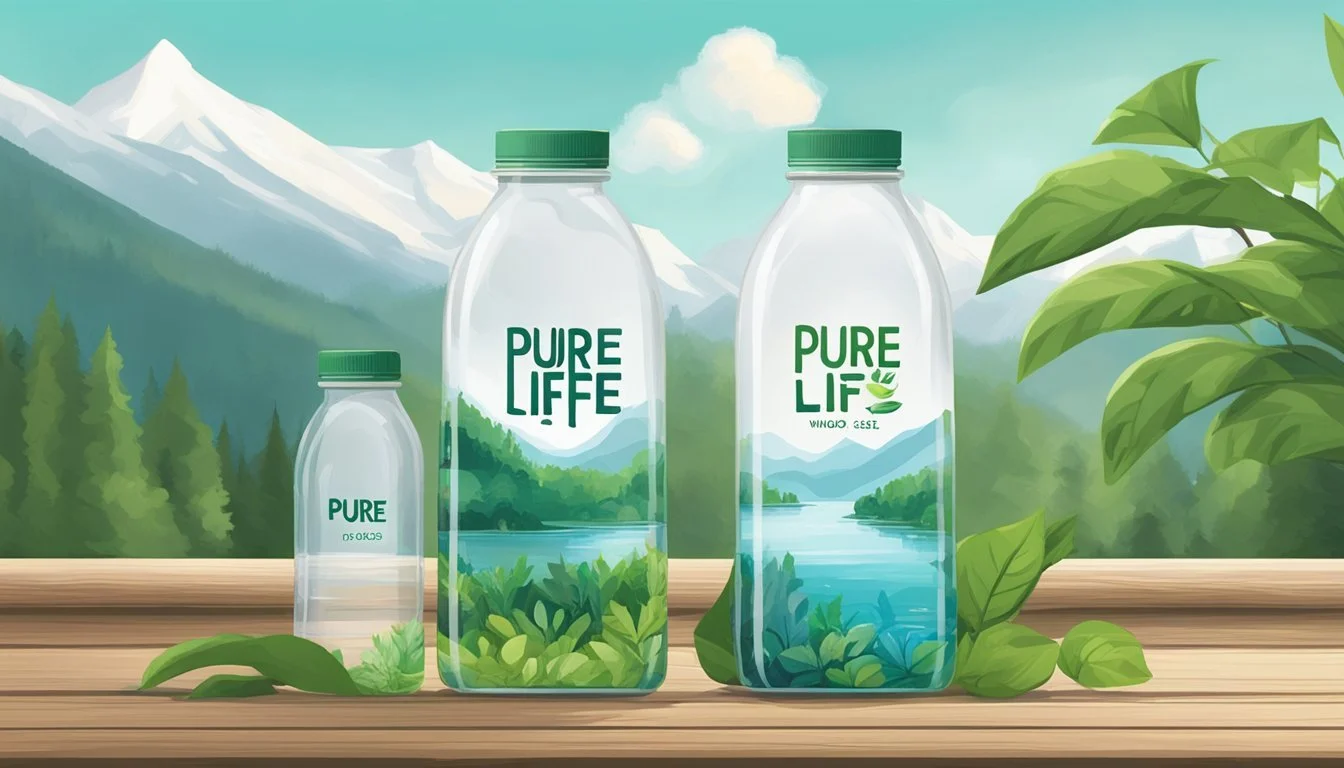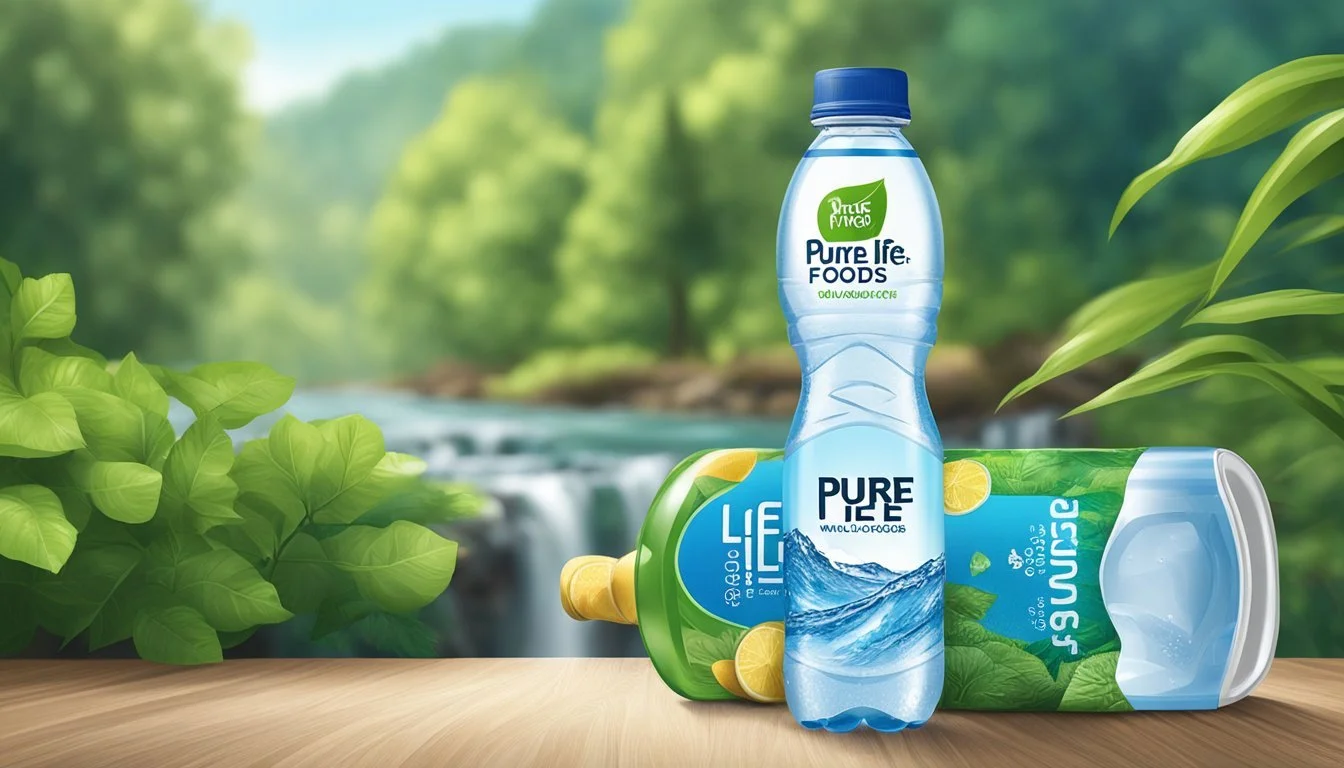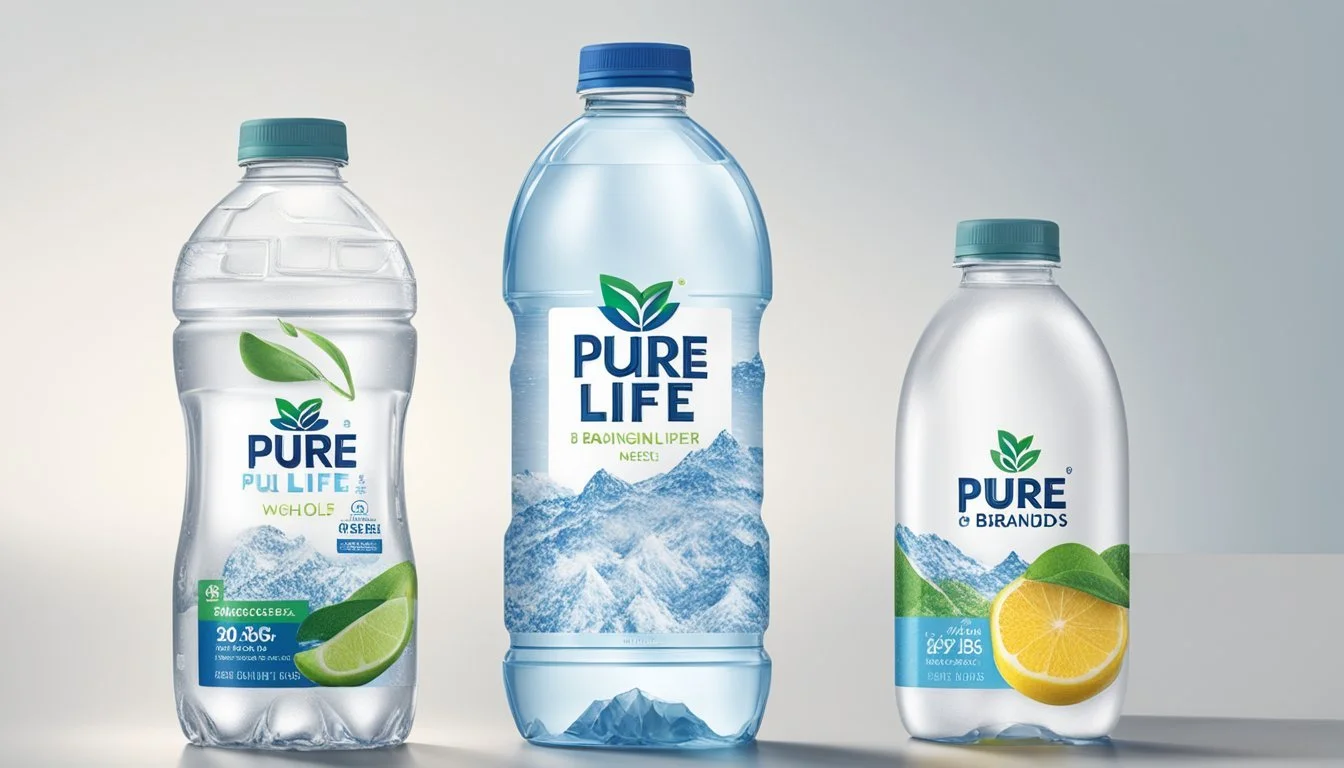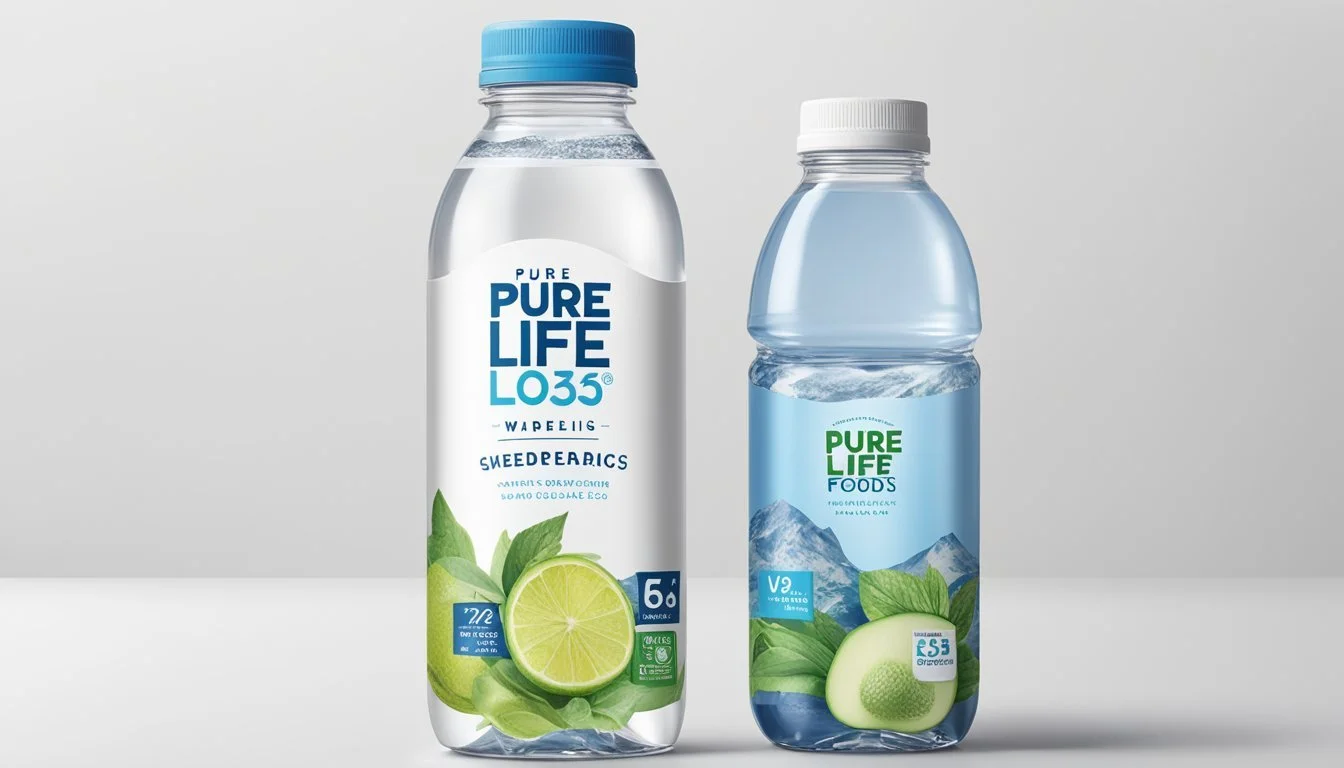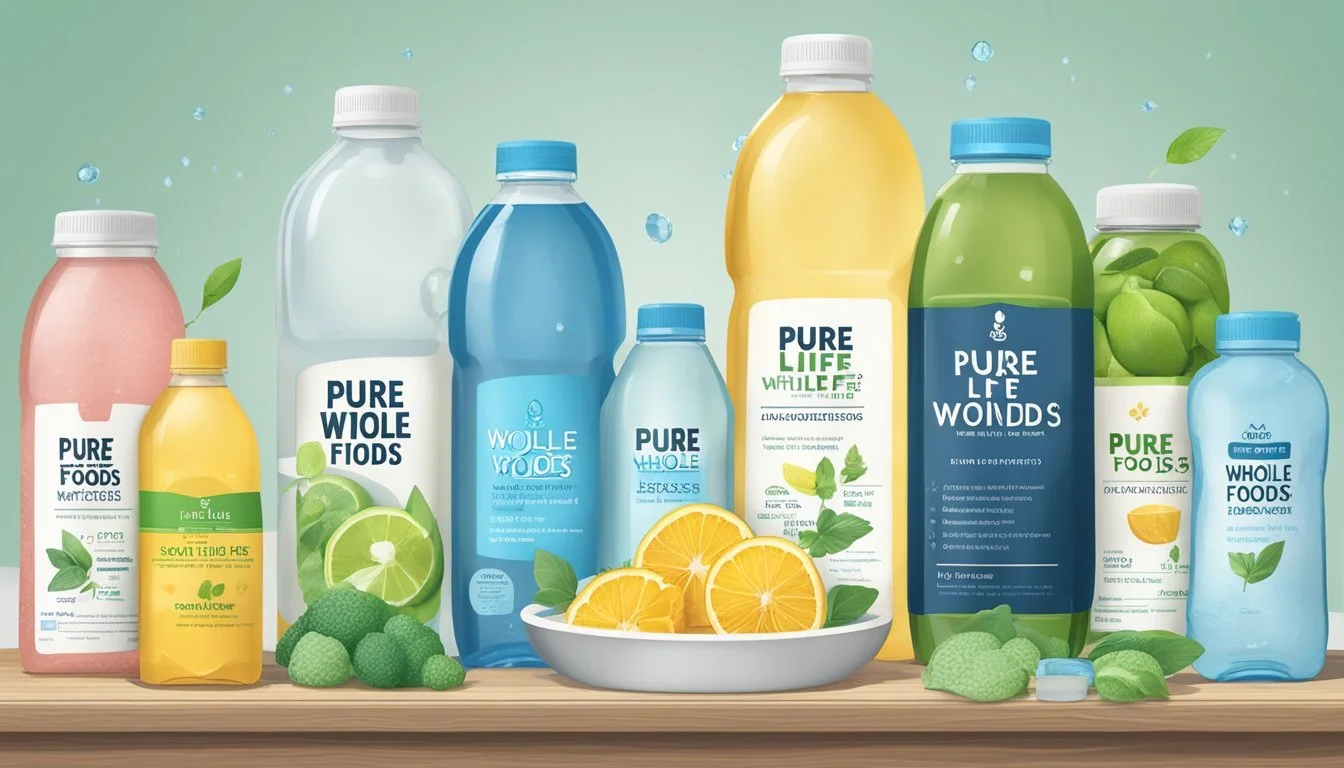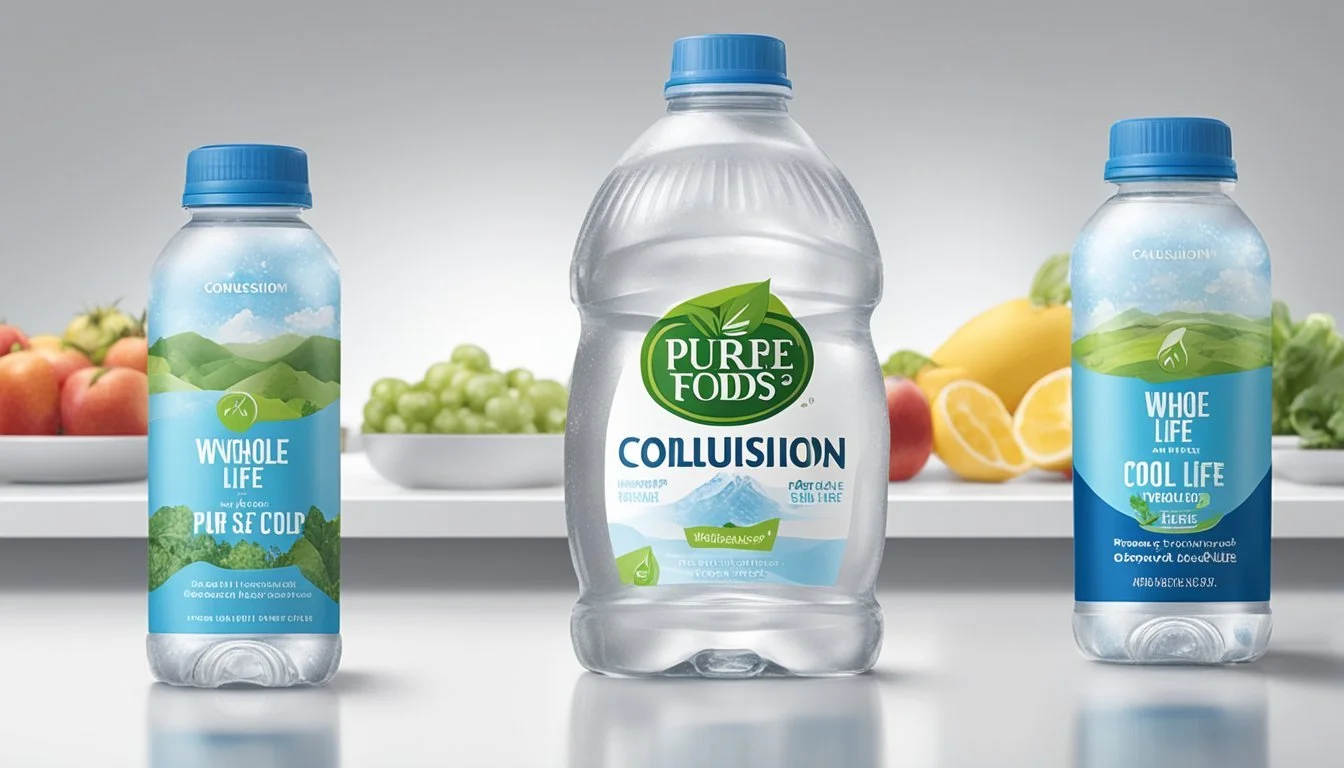Pure Life vs. Whole Foods 365
A Bottled Water Comparison
Choosing the best bottled water can be a daunting task, especially with an array of brands like Pure Life and Whole Foods 365. Both brands have their dedicated followers, but which one truly stands out? By comparing their taste, content, and consumer feedback, we can determine which one offers superior hydration and quality.
Pure Life, a prominent player in the bottled water industry, is known for being part of the extensive Nestlé portfolio. The brand claims to deliver purified water with added minerals for taste. On the other hand, Whole Foods 365 presents itself as a more natural option, offering spring water that promises a refreshingly crisp experience.
In a direct comparison, Whole Foods 365 offers a better-tasting experience for those who prefer a natural spring water taste, while Pure Life provides a consistent and reliable option with added minerals. Consumer Reports have highlighted specific pros and cons of both, including taste, content, and potential contaminants, making this an essential read for anyone serious about their hydration choice.
Understanding Bottled Water
Bottled water comes in various forms, each catering to different preferences and needs. It is crucial to understand the different types, the regulatory standards each must follow, and their environmental impact.
Types of Bottled Water
Spring Water: Sourced from underground formations, spring water reaches the surface naturally. It retains natural minerals and is often preferred for its pure taste.
Purified Water: This type undergoes significant processing like distillation or reverse osmosis to remove impurities. It is commonly chosen for its cleanliness.
Natural Spring Water: Similar to spring water, this type is collected directly from springs but is specifically marketed for its natural mineral content.
Mineral Water: Contains minerals from the source, beneficial for health. The minerals must come from the source without any additives.
Artesian Water: Comes from confined aquifers. It is pushed to the surface by natural pressure, often praised for its purity.
Alkaline Water: Treated to increase its pH level. Some believe it has health benefits, though studies are inconclusive.
Sparkling and Carbonated Water: Contains dissolved carbon dioxide gas, giving it fizz. Popular for those who desire a bubbly alternative to still water.
Regulatory Standards
The quality of bottled water is regulated to ensure safety.
Food and Drug Administration (FDA) oversees bottled water for interstate commerce and enforces standards of quality, labeling, and safety.
Environmental Protection Agency (EPA) regulates tap water with stringent standards to ensure public health. Although not directly regulating bottled water, their standards influence bottled water quality.
Labeling: Bottled water labels must clearly state the type of water, the source, and any treatments it has undergone.
These standards aim to protect consumers by ensuring the water is safe and accurately represented.
Environmental Impact of Bottled Water
Bottled water has significant environmental consequences.
Plastic Waste: Single-use plastic bottles contribute heavily to environmental pollution. Many bottles end up in landfills or oceans, harming wildlife.
Carbon Footprint: The production and transportation of bottled water involve significant energy consumption and carbon emissions.
Sustainability: Choosing environmentally friendly options, like recycled bottles or reducing single-use plastics, can mitigate negative impacts.
Recycling: Encouraging and improving recycling efforts can help reduce waste and environmental harm.
These considerations are important for consumers who are environmentally conscious and seeking to make more sustainable choices.
Brands and Origins
Nestlé Pure Life and Whole Foods 365 are two prominent names in the bottled water industry, each with its own unique backstory. This section covers their origins and how they compare with other popular brands.
Nestlé Pure Life
Nestlé Pure Life is a subsidiary of Nestlé, one of the largest food and beverage companies globally. Nestlé Pure Life sources its water from both well and municipal sources, ensuring it's purified and safe for consumption through processes like reverse osmosis and ozonation.
Nestlé's extensive distribution network ensures that Pure Life is widely available. The brand focuses on offering quality and convenience. Nestlé Waters also manages other notable brands such as Poland Spring, Deer Park, and Perrier.
Whole Foods 365 Brand
Whole Foods 365 is sourced from natural springs, managed by Spring Hill. Known for maintaining high standards, Whole Foods ensures their branded water is free from contaminants, adhering to stringent quality checks.
Whole Foods Market emphasizes sustainability and health, reflected in their bottled water range. The 365 brand is committed to providing pure, high-quality water at reasonable prices, appealing to health-conscious consumers. Coca-Cola’s Dasani and Aquafina by PepsiCo are also key competitors in the same market segment.
Comparing Other Popular Brands
When comparing Nestlé Pure Life and Whole Foods 365 with other popular brands like Fiji and Evian, various factors come into play. Fiji and Evian are known for their natural artesian and spring sources, respectively, creating a premium market perception.
Brands such as Smartwater and Voss emphasize purity and sleek packaging, attracting a different demographic. Icelandic Glacial and Mountain Valley highlight mineral content and natural origin, appealing to those seeking specific health benefits.
Aquafina and Dasani, both major players backed by PepsiCo and Coca-Cola respectively, rely heavily on municipal sources and advanced purification processes.
Understanding these differences can help consumers make informed choices based on origin, quality, and brand reliability.
Quality and Contents
Evaluating bottled waters requires a close look at purity, mineral content, and pH levels to determine the best choice between Pure Life and Whole Foods 365.
Evaluating Water Purity
Purity is essential for clean drinking water. Pure Life undergoes a rigorous purification process involving reverse osmosis and ozonation, ensuring the removal of potential contaminants like lead and other heavy metals.
Whole Foods 365 Spring Water is sourced from natural springs and is subject to both state and federal standards. It is tested for a wide range of harmful chemicals including PFAS, arsenic, and cadmium. Both brands are committed to high purity standards, but it's crucial to check for any recent advisories or tests from independent sources.
Minerals and Electrolytes
Both Pure Life and Whole Foods 365 contain beneficial minerals that contribute to taste and health. Pure Life is fortified with added minerals like calcium, magnesium, and potassium, enhancing the taste and providing essential electrolytes.
Whole Foods 365 Spring Water naturally contains minerals, as it’s sourced directly from springs. This gives it a distinct taste profile influenced by its mineral composition. When comparing, some consumers might prefer the natural mineral balance of Whole Foods 365 over the added minerals in Pure Life.
Assessing pH Levels
The pH level of water affects taste and potential health benefits. Pure Life typically has a neutral pH around 7, ensuring it doesn't affect the body's natural balance.
Whole Foods 365 often has a slightly acidic to neutral pH, depending on the source of the spring. For those concerned with acidity, examining recent tests can help. Maintaining a balanced pH in drinking water is essential for those with specific health concerns or preferences.
Both brands strive to offer clean, safe, and refreshing bottled water options, with their own unique processes and compositions contributing to their overall quality.
Health and Hydration
Pure Life and Whole Foods 365 bottled waters each offer their own unique benefits and risks when it comes to health and hydration. This section compares their hydration benefits and potential health risks.
Hydration Benefits
Pure Life is known for its clean drinking water properties and reliable refreshment. It offers essential hydration without any noticeable plastic aftertaste, which can be important for maintaining daily fluid intake.
Whole Foods 365 spring water also provides effective hydration and is a more affordable option at 69 cents per bottle. Although described as having a dry aftertaste, this spring water remains a popular choice for those looking for basic hydration.
Both brands are effective at keeping the body hydrated, making them suitable for those focused on staying refreshed throughout the day. While Pure Life might have a neutral taste favored by many, Whole Foods 365's cost-effectiveness can cater to budget-conscious consumers.
Potential Health Risks
Concerns have been raised about contaminants in bottled waters, such as PFAS chemicals found in some brands. Pure Life's association with Nestlé might raise flags due to safety and quality concerns, which have been noted in consumer reports. These contaminants could potentially pose health risks over time.
Whole Foods 365 doesn't escape scrutiny either, with some users mentioning a sour taste and dry aftertaste, which might suggest variations in water purity or mineral balance.
It's crucial to note that both brands might contain electrolytes and other additives, which can be beneficial or detrimental depending on individual dietary needs. Consumers should remain vigilant regarding potential contaminants and chemical levels in their bottled water choices to ensure clean drinking water and minimize health risks.
Consumer Considerations
Consumers often weigh multiple factors before choosing between Pure Life and Whole Foods 365 bottled water brands. Important considerations include taste and aftertaste, packaging options, and price.
Taste and Aftertaste
Taste plays a crucial role in selecting bottled water. Whole Foods 365 Spring Water is noted for its spring water quality, though it has been described as having a sour and dry aftertaste. Pure Life is generally considered neutral, making it a safer choice for those who prefer a less distinctive flavor.
Consumers who prioritize taste might find Whole Foods 365 less appealing, especially with its aftertaste. Conversely, Pure Life offers a cleaner, more consistent flavor profile that appeals to a broader audience.
Packaging Choices
Packaging is a vital aspect for environmentally-conscious consumers. Whole Foods 365 provides various packaging options, including BPA-free plastic bottles and some glass options preferred by those avoiding plastic. They may also offer boxed water alternatives, following the trend seen with brands like Antipodes and Flow.
Pure Life, primarily available in BPA-free plastic, caters to convenience and portability but lacks variety in eco-friendly packaging. For consumers prioritizing sustainability, Whole Foods 365 offers better choices, aligning with the practices of brands like Core Hydration and Penta.
Price Comparison
Price is a significant factor when choosing bottled water. Whole Foods 365 is typically sold at a competitive price point in grocery stores, costing around 69 cents per bottle. This makes it an affordable option for daily consumption.
Pure Life is often slightly more expensive. However, its higher price might justify its neutral taste and brand trustworthiness. For budget-conscious consumers, Whole Foods 365 may present a better value, though Pure Life’s consistency and taste could warrant the extra cost for some.
By examining these factors, consumers can make a more informed decision between Pure Life and Whole Foods 365, ensuring that their choice aligns with their taste preferences, packaging priorities, and budget considerations.
Purification and Enhancement Processes
Bottled water brands Pure Life and Whole Foods 365 use various techniques to ensure their products meet high purity and quality standards. These processes affect the taste, mineral content, and overall safety of the water.
Filtration and Purification
Pure Life utilizes a 12-step purification process. This includes activated carbon filtration and reverse osmosis, which removes impurities and contaminants. These steps ensure that the water is free from harmful substances, providing a clean and safe drinking experience.
Whole Foods 365 also employs rigorous purification methods. Their water undergoes filtration and reverse osmosis, similar to Pure Life. This multi-step approach guarantees that contaminants are effectively removed, contributing to the water’s high quality.
Both brands are committed to eliminating unwanted substances, such as sodium, which can be crucial for individuals with kidney conditions or those monitoring their sodium intake.
Enhancement Techniques
Pure Life and Whole Foods 365 may also incorporate enhancement techniques to improve the water's properties. One popular method involves ionization, which can make water more alkaline by increasing its pH level. Alkaline water is believed to offer health benefits, although scientific consensus varies.
Another enhancement technique is through the addition of minerals. This can enhance the taste and potentially offer health benefits. For instance, water can be passed over rocks like tourmaline springs, which naturally enhance the mineral content.
These enhancement methods not only improve the taste but also ensure the water remains refreshing and beneficial for consumption.
Analyzing Customer Reports and Reviews
Consumer Reports has extensively tested various bottled water brands, including Pure Life and Whole Foods 365. They evaluated factors such as purity, taste, and chemical content.
Pure Life shows positive remarks on its consistency in flavor and affordability. The water is often praised for its refreshing taste, though some customers point out issues with occasional plastic-like taste.
Whole Foods 365 is generally well-reviewed for its clean taste and eco-friendly packaging. Some reviews highlight its slightly higher price point, which is justified by its perceived higher quality.
Aspect Pure Life Whole Foods 365 Purity Consistent, occasional plastic taste Clean and refreshing Affordability More affordable Higher price point Packaging Standard plastic bottles Eco-friendly packaging Customer Reviews Positive, sporadic issues Mostly positive
Both brands have a solid reputation, yet they cater to slightly different consumer needs. Customers concerned with value and accessibility might prefer Pure Life, while those prioritizing sustainability and a premium feel could lean towards Whole Foods 365.
Taste and packaging are key differentiators. Regular consumers appreciate the refreshing quality of Whole Foods 365, while Pure Life remains a popular choice for those seeking reliable and budget-friendly options.
Conclusion
Pure Life and Whole Foods 365 bottled water brands each have their unique characteristics. Both brands offer accessible hydration options but differ in taste, quality, and price.
Taste
Pure Life*: Often described as having a neutral taste, suitable for daily consumption.
Whole Foods 365*: Some reviews mention a slightly sour taste with a dry aftertaste.
Quality
Pure Life*: Associated with Nestlé Waters, the world's largest bottled water corporation, ensures rigorous safety checks but has been deemed "painfully average" by some.
Whole Foods 365*: Marketed as spring water, yet lacks exceptional reviews. Some of their water sources have been flagged for containing PFAS chemicals.
Price
Pure Life*: Generally affordable, making it a practical choice for everyday use.
Whole Foods 365*: Priced competitively, often slightly higher due to its branding as spring water.
In summary, Pure Life offers a reliable and cost-effective option for those seeking neutral-tasting bottled water. On the other hand, Whole Foods 365 might appeal to consumers who prefer spring water, despite its mixed reviews on taste and safety concerns related to PFAS chemicals.
More About Pure Life
Cascade Mountain vs Pure Life: Which Bottled Water is Better?
Hawaii Volcanic vs Pure Life: Which Bottled Water is Better?
Hawaiian Springs vs Pure Life: Which Bottled Water is Better?
Icelandic Glacial vs Pure Life: Which Bottled Water is Better?
Nestle Pure Life vs Pure Life: Which Bottled Water is Better?
Pure Life vs Kirkland Signature: Which Bottled Water is Better?
Richard's Rainwater vs Pure Life: Which Bottled Water is Better?
Solan de Cabras vs Pure Life: Which Bottled Water is Better?
Talking Rain AQA vs Pure Life: Which Bottled Water is Better?
Whole Foods Italian Still Mineral water vs Pure Life: Which Bottled Water is Better?
More About Whole Foods 365
Acqua Pana vs Whole Foods 365: Which Bottled Water is Better?
Alkaline88 vs Whole Foods 365: Which Bottled Water is Better?
Antipodes vs Whole Foods 365: Which Bottled Water is Better?
Aqua Carpatica vs Whole Foods 365: Which Bottled Water is Better?
Arrowhead vs Whole Foods 365: Which Bottled Water is Better?
Big Chill vs Whole Foods 365: Which Bottled Water is Better?
Boxed Water vs Whole Foods 365: Which Bottled Water is Better?
Cascade Mountain vs Whole Foods 365: Which Bottled Water is Better?
Castle Rock vs Whole Foods 365: Which Bottled Water is Better?
Core Hydration vs Whole Foods 365: Which Bottled Water is Better?
Crystal Geyser vs Whole Foods 365: Which Bottled Water is Better?
Deer Park vs Whole Foods 365: Which Bottled Water is Better?
Hawaii Volcanic vs Whole Foods 365: Which Bottled Water is Better?
Hawaiian Springs vs Whole Foods 365: Which Bottled Water is Better?
Ice Mountain vs Whole Foods 365: Which Bottled Water is Better?
Icelandic Glacial vs Whole Foods 365: Which Bottled Water is Better?
Just Water vs Whole Foods 365: Which Bottled Water is Better?
Liquid Death vs Whole Foods 365: Which Bottled Water is Better?
Mountain Valley Spring Water vs Whole Foods 365: Which Bottled Water is Better?
Nestle Pure Life vs Whole Foods 365: Which Bottled Water is Better?
Open Water vs Whole Foods 365: Which Bottled Water is Better?
Poland Spring vs Whole Foods 365: Which Bottled Water is Better?
Purely Sedona vs Whole Foods 365: Which Bottled Water is Better?
Richard's Rainwater vs Whole Foods 365: Which Bottled Water is Better?
San Pellegrino vs Whole Foods 365: Which Bottled Water is Better?
Simple Truth vs Whole Foods 365: Which Bottled Water is Better?
Smartwater vs Whole Foods 365: Which Bottled Water is Better?
Solan de Cabras vs Whole Foods 365: Which Bottled Water is Better?
Talking Rain AQA vs Whole Foods 365: Which Bottled Water is Better?
Topo Chico vs Whole Foods 365: Which Bottled Water is Better?
Weird Water vs Whole Foods 365: Which Bottled Water is Better?
Whole Foods 365 vs 1907water: Which Bottled Water is Better?
Whole Foods 365 vs BodyArmor: Which Bottled Water is Better?
Whole Foods 365 vs CBD Living: Which Bottled Water is Better?
Whole Foods 365 vs Crystal Lake: Which Bottled Water is Better?
Whole Foods 365 vs Essence pH10: Which Bottled Water is Better?
Whole Foods 365 vs Kirkland Signature: Which Bottled Water is Better?
Whole Foods 365 vs Proud Source: Which Bottled Water is Better?
Whole Foods Italian Still Mineral water vs Whole Foods 365: Which Bottled Water is Better?
Zephyrhills vs Whole Foods 365: Which Bottled Water is Better?

